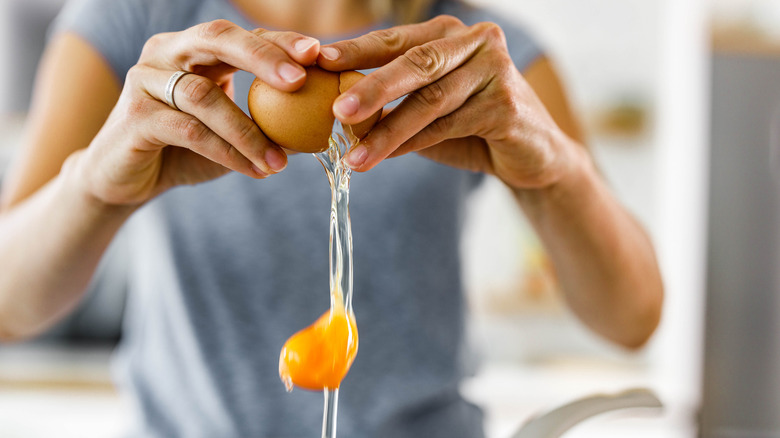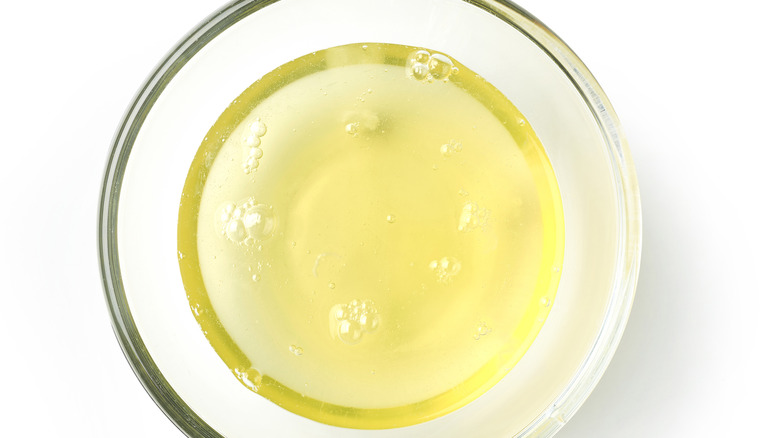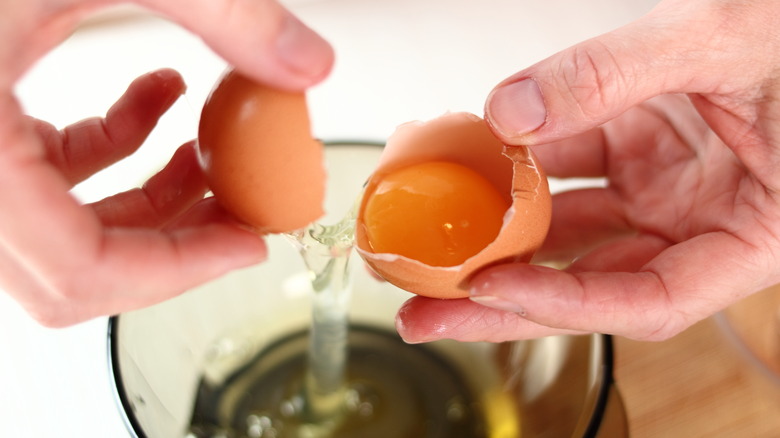You Can Actually Freeze Those Leftover Egg Whites To Use For Later
For years, eggs were one of the most versatile and reliably inexpensive ingredients in any refrigerator. Fast forward to today, however, and record-breaking inflation has made the price of eggs fluctuate wildly, doubling the cost in some places. While the price of eggs has finally started to cool off in 2023, according to a report by the USDA, the days of cheap eggs are probably long gone. Even if you're not watching your grocery budget, it's always good to keep an eye on how much food waste you create, because it can contribute to overfilled landfills, pollution, and climate change. If you're making a recipe that calls for egg yolks, don't just toss the whites in the trash. The protein-filled whites are incredibly useful for everything from omelets to meringue. If you're not in a position to make anything with the whites when you're doing the egg cracking, just freeze them for later, because it's nice to have a supply of just whites when you need them.
Egg whites freeze very well, and you can pull them out for cooking next time you're making a consommé (or anything else that requires only egg whites). You don't need any special equipment, just a couple of ziplock bags or an ice cube tray, plus a Sharpie.
Freezing in batches
When a recipe such as hollandaise sauce or homemade mayonnaise or Caesar dressing calls for a lot of egg yolks but offers no immediate plan for the leftover whites, they tend to get tossed out or washed down the drain. If you find yourself with a batch of spare egg whites, you can freeze them together to use for your next angel food cake, or for a batch of coconut macaroons.
Pour your whites into a freezer-safe ziplock or other freezer-friendly container that doesn't leave extra air inside, and then label the container with the date and the number of egg whites with a Sharpie. The egg count is important because by the time you actually need the whites, you might not remember if it was eight or 12 egg whites, and accuracy is crucial for baking recipes. When it's time to use the egg whites, thaw them out as you would any frozen piece of meat by either placing them in the refrigerator overnight or placing the container in a bowl of running water in the sink.
Freeze them individually
If you tend to use only one or two egg whites at a time, you can also freeze them individually with an ice cube tray. Each time you crack an egg, pour the white into one of the ice cube slots and pop the tray into the freezer for several hours. If you're extra organized, you can also freeze all of your egg whites this way and then take them out of the ice cube tray and store them in a large freezer bag so that you can grab them individually or have them ready as a batch whenever you need some whites. If you use the ice cube tray method, you still should find a way to label and date your egg whites so that you don't lose track of time while they're in the freezer; they are safe to thaw and eat for up to a year according to Pete & Gerry's, but you should try to use them within two months.
Individually frozen whites will thaw a lot faster than a batch of whites, so you can thaw them in the refrigerator for a few hours or leave them in a bowl on the counter while you're gathering your mise en place, and they'll probably be thawed by the time you start cooking. Just follow the same basic food safety guidelines as you would with fresh eggs, and you can use your frozen whites just like you would when they're fresh.


